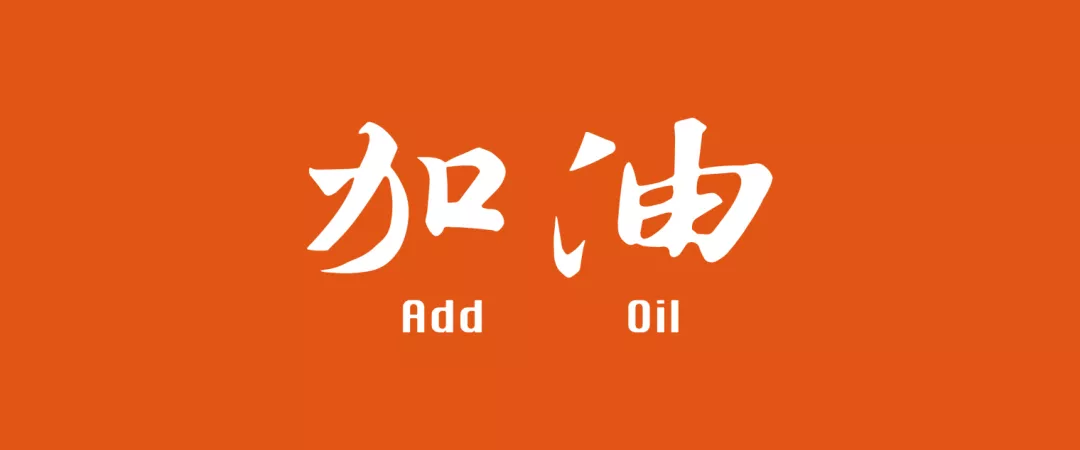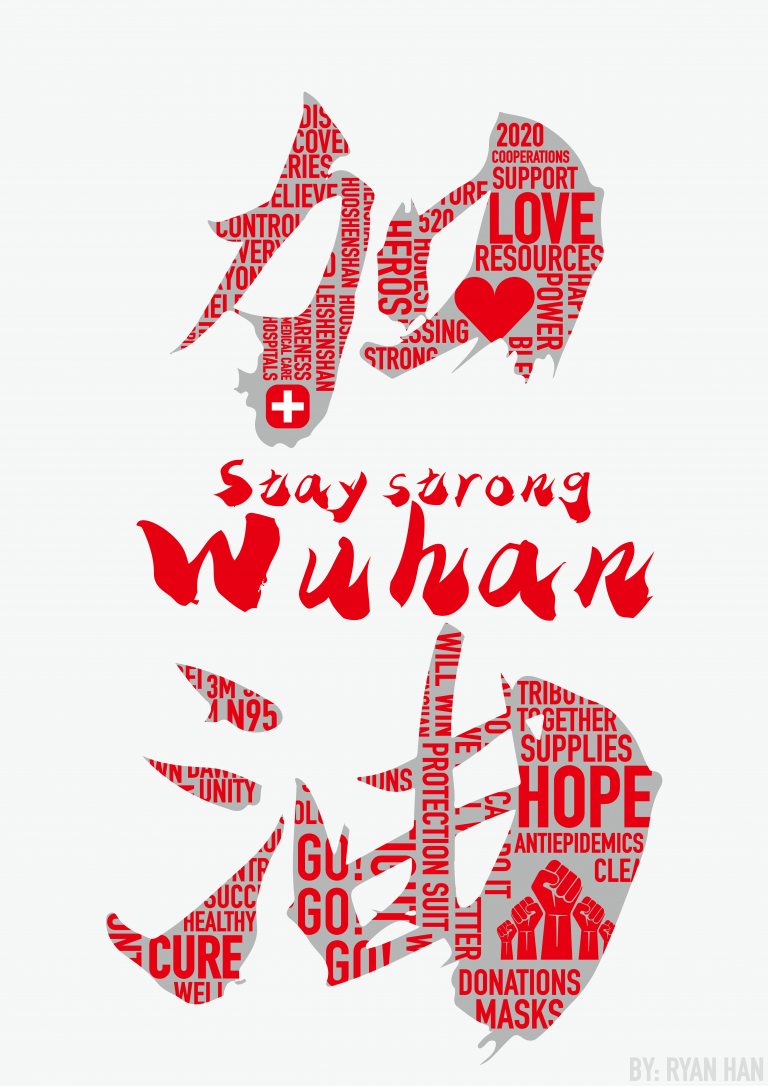If you have ever followed the Olympics, or watched a few games with your Chinese friends, you have probably heard the Chinese exclaim 加油 jiā yóu more than once. The most obvious time being when Chinese sports fans were rooting for their teams, especially when the players are leading the scoreboard. At that time, you might think they were just yelling at the TV, or that it’s just something people shout out when they’re excited. Then another scenario—you are on WeChat, telling someone how tired you are on Monday morning because of all the work you had to do over the weekend—and you’re still not finished. Your sympathetic friend sends you the characters 加油 with a raised fist emoji.
The phrase jiayou 加油 literally means to add fuel or lubricating oil to the machinery. When you go to the gas station, you say jiayou, and then the staff will pump gasoline into your car’s gas tank. Jiayou also literally means to add oil to the pan to cook a meal. But you can also hear jiayou during a competition or before exams. So why do people use jiayou in such situations?
 Image credit: https://m.topys.cn/article/28300
Image credit: https://m.topys.cn/article/28300
Jiayou is also a means of expressing encouragement, excitement or giving support to oneself or others. According to one Chinese-language-learning website, “Some people believe that the phrase was coined at the Macau Grand Prix during the 1960s, where the crowd would shout at the pit teams to “Add Oil!” (fuel) to the racing cars.” 1 But this meaning originally derives from a literary quotation in ancient China. 2 During the Qing dynasty, a person named Zhang Ying won the first-degree scholar in the imperial examination. He would pay special attention to education on his tours of local education inspections. It was said that when he saw students studying hard at midnight, he would tell his assistants to add oil into their oil lamps to keep them lit so the students could see better, which encouraged the students. This usage of jiayou has since been passed down.
During the Chinese economic reform of the late 1970s, the phrase jiayou was seen in a lot of factories. It was printed on red paper and pasted on factory walls. This simple phrase along with the red color was aimed to stimulate workers’ passion and willingness to excel at their job. Workers’ devotion increased their work performance and thus escalated the overall productivity, which helped the development of the manufacturing industry at that time. Author Tuo Yi writes that jiayou was a necessary and ubiquitous slogan to the laborers in farmland capital construction. 3 This phrase gave them the belief and motivation needed to keep pushing their limits.
If you translate jiayou into English by its definition of encouragement, you may get “go for it.” However, it does not explore the whole scope of the meaning of this phrase. Jiayou has more pragmatic implications. Not only can it be used in stage performances and sports events, but it can also be seen in any situation that someone needs to be encouraged. It applies to both spoken and written language. If the translation is limited to “go for it,” foreign language speakers may be confused about its use in certain situations because “go for it” is not always used in the same situations as jiayou. The multiple definitions of jiayou shed some light on the depth of the Chinese language and culture, of which Chinese people are proud.
As far as context goes, jiayou can be used outside the athletic or achievement context. For instance, when your friend holds unrequited passion toward somebody, or in an emotional situation where you want to show a friend that they have your support, then jiayou also means “I’ve got your back,” “I think what you’re doing is worth all your effort,” “You have all my blessings,” or “I look forward to seeing your success.”
Now jiayou, translated into English as “add oil,” is recorded in the Oxford English Dictionary. 4 The phrase is a versatile expression typically used in encouraging and supporting speeches. It gained international attention when it was used in the Umbrella Revolution of Hong Kong in 2014. According to Hong Kong’s Zolima CityMag, “It was a way of encouraging protesters to keep it up and it (add oil) previsualized Hong Kong’s cityscape by mixing urbanism, public culture and the defiance of authority. ” 5 The phrase gives the listeners confidence to continue their hard work.
Now we have come to a crucial moment, with the outbreak of the coronavirus, which affected the whole country to varying degrees for the first months of 2020. The city of Wuhan, the center of the outbreak, suffered the worst. Provinces and cities across China donated a large number of resources for Wuhan and the rest of Hubei Province, and phrases like “中国加油 Zhongguo jiayou” and “武汉加油 Wuhan jiayou” could be seen everywhere, intending to inspire Wuhan and to inspire the whole country.
 Image credit: https://www.ibwya.net/love-from-bwya-students-to-wuhan/
Image credit: https://www.ibwya.net/love-from-bwya-students-to-wuhan/
Overall, the phrase jiayou is very important to Chinese people. Simple as it is, it delivers a message that you have support. The COVID19 patients in Huangshi hospital in Hubei province received gifts with cards with “jiayou” written on them, encouraging them to become healthy again. 6 The simple pronunciation of jiayou in Chinese makes it catchy so that it has become commonly used in encouraging others.
 Shen Jiayi (沈佳怡)is a member of the DKU class of 2023, and grew up in a traditional shikumen alleyway neighborhood in Shanghai, near Yu Garden. As there are a lot of exhibitions in Shanghai, she developed the hobby of visiting those exhibitions to learn and explore different cultures of the world. She wrote this essay in Austin Woerner’s EAP102A class.
Shen Jiayi (沈佳怡)is a member of the DKU class of 2023, and grew up in a traditional shikumen alleyway neighborhood in Shanghai, near Yu Garden. As there are a lot of exhibitions in Shanghai, she developed the hobby of visiting those exhibitions to learn and explore different cultures of the world. She wrote this essay in Austin Woerner’s EAP102A class.Editor | Laura Davies
Layout | Hester He 何思樾
References
- “Add Oil! ‘Jia You”’ Makes it Into the Oxford English Dictionary,” The Chairman’s Bao, October 18, 2018 ↩
- Chen Haosu, “The Origins of the Word Jia You: A Historical Allusion Relating to Zhang Zhidong.” Jianshu, January 2, 2019 ↩
- Tuo Yi, “Shi Wo (石硪)” in Keep the Homesickness (留住乡愁) (Beijing: Beijing Book Co. Incorporated, 2016). ↩
- “Add Oil Interjection (Expressing Encouragement) Before 2005,” OED Appeals, OED.com (website of the Oxford English Dictionary), May 17, 2016 ↩
- Gabriella Zanzanaini, “Pop Cantonese: 加油 – Add Oil,” Zolima CityMag, January 18, 2017 ↩
- Gu Zhiming, “The Huangshi Patients Smiled When Receiving the ‘Gift of Refueling’ from the Medical Staff in Jiangsu,” Xinhua News, February 18, 2020 ↩

